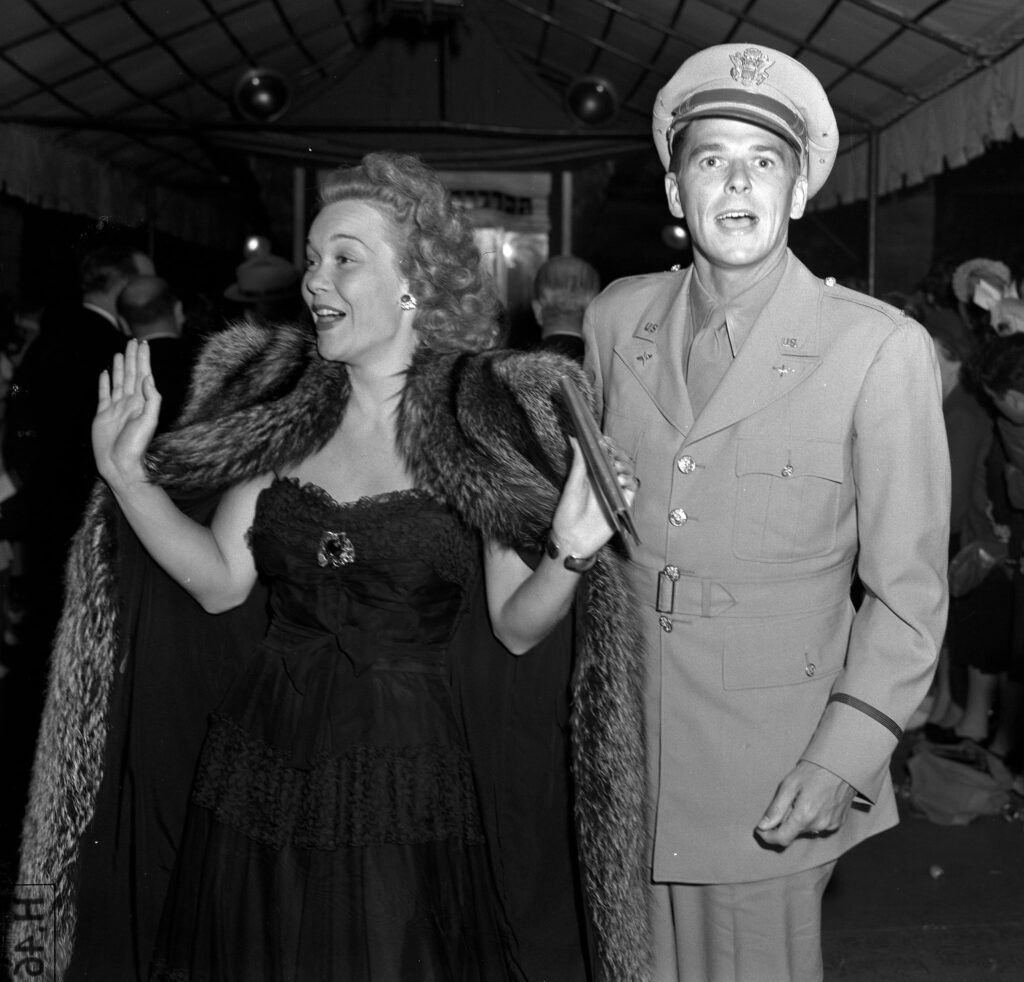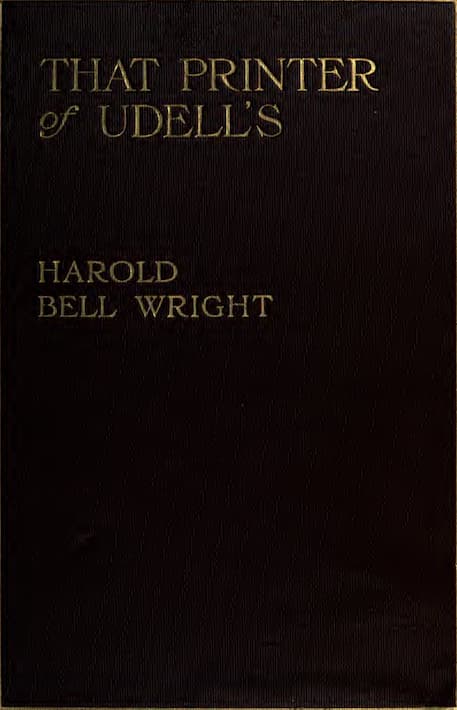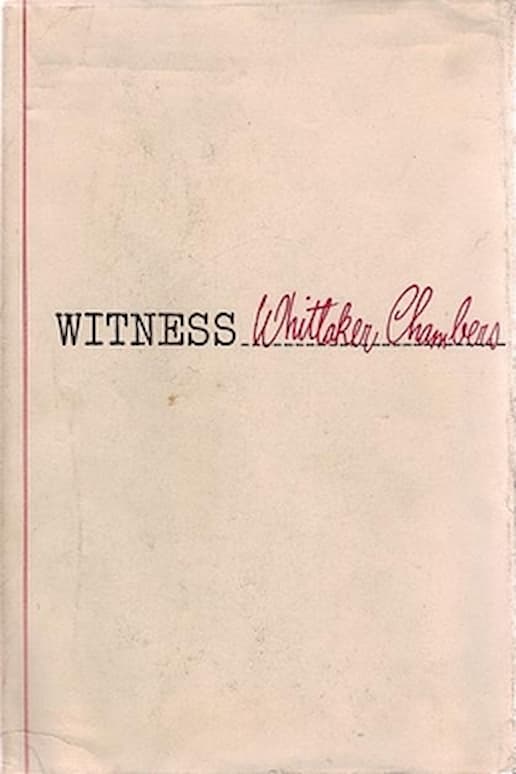Early Life and Hollywood Beginnings
Setting the Scene
Born on February 6, 1911, in Tampico, Illinois, Ronald Wilson Reagan grew up in a modest Midwestern household during the throes of World War I and the Great Depression. Known affectionately as “Dutch” in his youth, Reagan’s early life was marked by family struggles and resilience. His father, Jack, battled alcoholism, which deeply influenced Reagan’s beliefs about self-discipline and personal responsibility. Despite financial hardships, the Reagan family instilled in him a strong sense of optimism—a trait that would come to define his later political image.
Hollywood Years and the Power of Public Presence
Reagan’s path to fame began as a sports radio announcer, where his natural charisma and voice captivated listeners. In 1937, while covering spring training for the Chicago Cubs in California, Reagan took a screen test with Warner Bros., marking the start of his Hollywood career. Over the next two decades, Reagan appeared in more than 50 films, with notable roles in movies like Knute Rockne, All American (1940), where he played George Gipp, and Kings Row (1942), a performance that left him contemplating a career shift to politics.
The Hollywood Transition to Politics
Hollywood also brought Reagan into contact with prominent figures and the political atmosphere of the time, which shaped his evolving political beliefs. Initially a Democrat and admirer of Franklin D. Roosevelt, Reagan’s views began to shift as he encountered what he perceived as a growing communist influence in Hollywood and America at large. By the 1950s, he had become politically active as the president of the Screen Actors Guild, where he fought against communist influence and advocated for industry self-regulation. This shift marked the beginning of his alignment with conservatism, culminating in his switch to the Republican Party in 1962.
Reagan’s Hollywood experience shaped his image as the “Great Communicator,” equipping him with public speaking skills and a telegenic presence that would later define his political career. As he said years later, “I never thought I’d be running for office myself… Hollywood prepared me in ways I could never have predicted.” This skill in connecting with the public made him relatable, paving the way for his gubernatorial run in California and ultimately the presidency.
Political Awakening and Governor of California
From Hollywood to Political Ideals
By the late 1950s, Reagan’s views were undergoing a profound transformation. His experiences in Hollywood, especially as president of the Screen Actors Guild, exposed him to what he saw as unchecked communist influence within the film industry, sparking his shift from an idealistic Democrat to a staunch conservative. During this period, Reagan’s political philosophy became rooted in individual freedom, limited government, and a deep suspicion of communism. In 1964, he gave a speech supporting Barry Goldwater’s presidential campaign, famously titled “A Time for Choosing.” The speech framed government as an overbearing force, with Reagan delivering the memorable line: “You and I have a rendezvous with destiny.”
This speech was nationally televised and had a profound impact, bringing Reagan widespread attention and marking him as a rising star within the conservative movement. Reagan’s delivery was both heartfelt and charismatic, and it connected with Americans who were concerned about federal overreach and communism. Political commentators remarked that he “had the aura of someone who didn’t just believe in what he was saying but was personally touched by it.” It was here that the seeds of his future candidacies took root.
Governor of California: Entering the Political Arena
Encouraged by the response to his “Time for Choosing” speech, Reagan ran for governor of California in 1966 and won in a landslide victory. His campaign focused on reducing government spending, reforming welfare, and, notably, cracking down on what he perceived as lawlessness on college campuses. The 1960s were a time of political unrest, particularly on college campuses where students protested the Vietnam War. Reagan’s response to these protests was direct and uncompromising; he famously called for the National Guard to address student protests at the University of California, Berkeley, declaring, “If it takes a bloodbath, let’s get it over with. No more appeasement.”
As governor, Reagan enacted significant tax cuts and worked to reduce California’s budget, though he occasionally had to compromise by raising taxes when faced with financial shortfalls. He advocated for welfare reform, aiming to reduce dependency on government assistance while promoting self-reliance—a principle that would later underpin much of his presidency. Reagan’s firm approach won him both loyal supporters and detractors; while some saw him as a champion of conservative values, others viewed his stances as excessively harsh.
Legacy as Governor
Reagan’s two terms as governor were instrumental in preparing him for national politics. He honed his image as a politician who could stand firm on his beliefs while maintaining a folksy, approachable demeanor. Even when facing opposition, Reagan projected an air of calm confidence, believing that his conservative principles resonated with everyday Americans. After leaving office in 1975, Reagan began laying the groundwork for a presidential bid, feeling confident that the values he championed in California could appeal to the entire nation.
As one political analyst put it, “Reagan didn’t just represent a set of policies; he embodied a sense of nostalgia for a simpler, more self-reliant America.” This sense of vision and conviction would be tested as he moved onto the national stage, ultimately reshaping the course of American politics and conservatism for decades to come.
The Presidency (1981–1989)
Taking Office and Facing Challenges
When Ronald Reagan assumed the presidency in January 1981, the United States was grappling with high inflation, rising unemployment, and a declining sense of global influence. Reagan’s optimistic approach was a stark contrast to the economic and social malaise many Americans were experiencing. His inaugural speech emphasized a renewed belief in the American dream, famously stating, “In this present crisis, government is not the solution to our problem; government is the problem.” This vision was central to Reagan’s approach throughout his presidency, which he dubbed the “Reagan Revolution.”
Domestic Policy: The Age of Reaganomics
Reagan’s economic policy, popularly known as “Reaganomics,” rested on four pillars: reducing government spending, lowering taxes, deregulating industries, and tightening control over the money supply. His administration championed the idea that reducing taxes would encourage investment, spurring economic growth that would eventually benefit everyone—a theory sometimes referred to as “trickle-down economics.”
One of the most significant moves was the Economic Recovery Tax Act of 1981, which cut individual income tax rates across the board. Though controversial, these tax cuts led to a period of economic growth throughout the 1980s. Supporters praised Reagan for restoring American confidence in free-market principles, while critics argued that his policies disproportionately favored the wealthy and contributed to a growing income inequality. Regardless of opinion, the Reagan era became synonymous with the idea of small government and free enterprise.
Foreign Policy: Confronting the Soviet Union
Reagan’s foreign policy, particularly his approach to the Cold War, was one of the defining aspects of his presidency. Reagan took a hard stance against the Soviet Union, labeling it the “Evil Empire” and arguing that the U.S. had a moral responsibility to combat communism worldwide. Under this doctrine, Reagan increased military spending to levels not seen since World War II, which included funding new technologies like the Strategic Defense Initiative (SDI), a proposed missile defense system that quickly became known as “Star Wars.”
Reagan’s uncompromising stance placed significant pressure on the Soviet Union, which was already struggling with economic difficulties. But he also surprised many by showing flexibility and a willingness to negotiate when he saw the opportunity for meaningful change. In 1985, Mikhail Gorbachev became the leader of the Soviet Union, and the two leaders held a series of historic summits that resulted in the signing of the Intermediate-Range Nuclear Forces (INF) Treaty in 1987. This was the first arms control agreement to eliminate an entire category of nuclear weapons, a milestone that symbolized the easing of Cold War tensions.
Humanitarian Efforts and Public Image
Reagan’s public image as a charming, relatable leader helped him maintain widespread popularity, even amid political controversies. Following the assassination attempt by John Hinckley Jr. in 1981, Reagan quipped to his doctors, “I hope you’re all Republicans,” a line that reflected his trademark sense of humor and won the public’s admiration. He quickly recovered and used the incident to reinforce his image as a resilient and determined leader.
His administration also tackled social issues, albeit from a conservative perspective. Reagan championed traditional family values, taking a strong stand against issues like drug abuse with his “War on Drugs” initiative. Although popular among his supporters, these policies faced criticism for disproportionately impacting minority communities and contributing to mass incarceration.
Controversies and Challenges
No presidency is without its challenges, and Reagan’s was no exception. The Iran-Contra affair, in which senior officials secretly facilitated the sale of arms to Iran and redirected proceeds to support anti-communist rebels in Nicaragua, cast a shadow over his administration. When the scandal was revealed in 1986, Reagan initially denied any knowledge of the deal, but later accepted responsibility. Though the scandal damaged his reputation temporarily, Reagan’s popularity recovered, aided by his personal charm and enduring appeal to the public.
Legacy of the Reagan Years
By the end of his second term, Reagan’s presidency was widely seen as a turning point in American history. His policies had ushered in a new era of conservative politics, and his efforts to end the Cold War reshaped global dynamics. Critics and supporters alike agree that Reagan fundamentally transformed the role of government in American life, shifting political dialogue toward free-market ideals and individualism.
Reagan left office in 1989 with one of the highest approval ratings of any departing president, securing his legacy as an influential figure in American history. His legacy continues to inspire debate on the effectiveness and ethics of his policies, but his enduring optimism and belief in American resilience remain influential to this day.
Personal Values and Enduring Influence
An Optimist at Heart
Throughout his life and political career, Reagan was known for his unwavering optimism. Friends, family, and political allies alike often remarked on his sunny disposition and steadfast belief in the goodness of the American people. This optimism wasn’t merely for show—it was a fundamental part of who he was. Reagan often spoke of America as a “shining city on a hill,” an idealized vision of a nation that serves as a beacon of freedom, democracy, and opportunity. He deeply believed that the American dream was achievable for everyone, as long as government interference remained minimal and people were free to pursue their goals.
Reagan’s religious faith also played a significant role in shaping his worldview. Raised in a Christian household, he often spoke of God and country in tandem, believing that America had a special purpose in the world. This faith provided him with strength during personal and professional hardships, from the assassination attempt in 1981 to his difficult final years facing Alzheimer’s disease. As he wrote in a 1994 letter to the American people, “I now begin the journey that will lead me into the sunset of my life. I know that for America there will always be a bright dawn ahead.”
His Deep Commitment to Individual Freedom
Reagan’s political philosophy was grounded in the idea that personal freedom and limited government were essential to human dignity and progress. He saw government’s role as protective rather than paternalistic, ensuring the safety and security of its citizens while otherwise staying out of their lives. His speeches frequently emphasized the value of self-reliance, a belief shaped by his own early struggles and by watching his parents work tirelessly to provide for their family.
This commitment to freedom also fueled Reagan’s passion for defeating communism. He viewed communism as an affront to human dignity, a system that stripped individuals of their autonomy. His tough stance against the Soviet Union and his support for freedom movements around the world reflected his belief that all people deserved the opportunity to live in freedom.
A Legacy Beyond Politics
Reagan’s impact on American life and politics didn’t end with his presidency. His influence can be seen in the modern conservative movement, which continues to embrace many of his principles, from tax cuts and limited government to a strong national defense. His legacy lives on through institutions like the Ronald Reagan Presidential Foundation and Library, which aim to preserve and promote his values.
Public figures from both parties have frequently referenced Reagan as an example of strong, principled leadership. His ability to communicate his ideas with sincerity, humor, and relatability is often cited as a model for politicians aiming to connect with the public. His charisma, optimism, and steadfast commitment to his beliefs set a standard for leadership that many still admire.
The Personal Side of a Public Figure
While he was known as a political icon, Reagan also had a warm, personable side that resonated deeply with those who knew him. He was known for his handwritten letters to citizens, often spending time responding to letters from children, veterans, and average Americans. Even in the midst of significant national crises, he remained approachable, connecting with people on a personal level.
In his private life, Reagan cherished his family, particularly his wife, Nancy. Their marriage was famously close, with Nancy playing an integral role as both his confidant and supporter. Many who observed the Reagans noted that their relationship was one of profound mutual respect and love. Nancy later spoke of her husband’s kindness and sense of humor as qualities that defined not only their marriage but his approach to life itself.
Facing Alzheimer’s and Final Reflections
In his post-presidency years, Reagan remained in the public eye, but his health began to decline. In 1994, he publicly announced his diagnosis of Alzheimer’s disease, writing a heartfelt letter to the American people in which he acknowledged the “long goodbye” ahead of him. This openness about his illness helped destigmatize Alzheimer’s, drawing attention to the disease and inspiring empathy across the country.
Reagan spent his final years largely out of the public view, with Nancy by his side until his passing in 2004. His legacy, however, continued to grow, as people across the political spectrum remembered him as a leader who brought both confidence and comfort to the nation.
Reagan’s Legacy: Influence on Political Discourse and Cultural Memory
The Great Communicator
Reagan earned the nickname “The Great Communicator” for his remarkable ability to connect with audiences. He mastered the art of public speaking with a warm and engaging style that combined humor, empathy, and conviction. His speeches often framed complex issues in simple, relatable terms, making his ideas accessible to everyday Americans. This talent became a template for future leaders, especially those within the conservative movement, who saw Reagan’s style as a model of how to communicate values and vision effectively.
Beyond the delivery of his speeches, Reagan’s tone was notable for its optimism and appeal to unity. Even when he criticized government policies or called out adversaries, his rhetoric often aimed at uplifting and inspiring the public rather than provoking or polarizing it. This approach contributed to his appeal across partisan lines and is often cited as a reminder of an era when political discourse was more civil and focused on shared national values.
Reagan’s Influence on Modern Conservatism
Reagan’s presidency marked a shift toward modern conservative ideals that continue to shape American politics today. His vision of smaller government, free-market economics, and a strong defense remains a cornerstone of the conservative agenda. Policies such as tax cuts, deregulation, and welfare reform that Reagan championed have been adopted and adapted by subsequent Republican leaders, reinforcing his role as a guiding figure in conservative politics.
His legacy also includes a cultural shift toward skepticism of government intervention, an idea that has influenced not only the GOP but also the general American attitude toward federal power. This shift remains evident in contemporary debates over government spending, healthcare, and education. Reagan’s belief in American exceptionalism and his emphasis on patriotism became core aspects of conservative identity, influencing the way Americans view their role on the global stage.
How Reagan is Remembered Today
Today, Reagan’s legacy is celebrated at institutions like the Reagan Presidential Library, which houses archives, exhibits, and interactive displays commemorating his life and achievements. The library also hosts events that promote Reagan’s values, keeping his memory alive for new generations. His iconic status is further reinforced through books, documentaries, and annual tributes from politicians and historians alike.
Interestingly, Reagan’s legacy has evolved over time, with some who opposed him politically now viewing him with a sense of respect and nostalgia. His genial approach to leadership has become a model for those who seek a return to a more collaborative, respectful political environment. He’s remembered not only as a transformative president but also as a figure who embodied the American spirit through his humor, resilience, and optimism.
Personal and Cultural Symbolism
Reagan’s influence extends beyond politics; he became a cultural symbol of resilience and the American dream. His journey from a small-town Midwestern boy to Hollywood star, and ultimately to the White House, represented a uniquely American story that resonated with millions. For many, Reagan embodied the idea that anyone could achieve greatness through hard work, self-belief, and adherence to their values.
This symbolic aspect of Reagan’s legacy is reflected in popular media, where he is often cited as a touchstone for American ideals. His face appears on various commemorative coins, stamps, and even in digital tributes online. Schools, highways, and public buildings are named after him, testifying to his widespread influence and the enduring impression he left on American society.
A list of Books on Ronald Reagan
A list of Ronald Reagan’s Favorite Books
Ronald Reagan on WikiPedia





